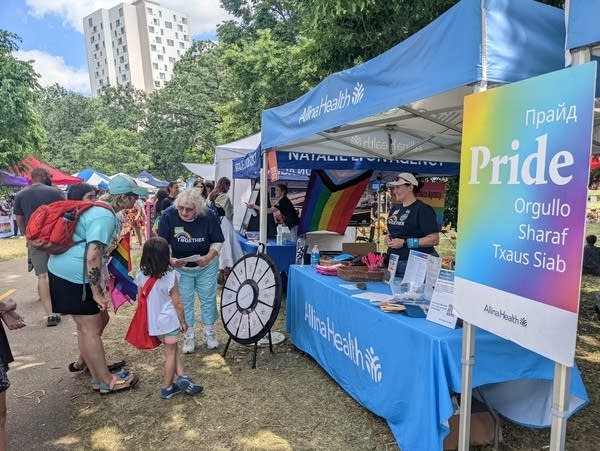Allina Health addresses breast health gap for transgender patients

Go Deeper.
Create an account or log in to save stories.
Like this?
Thanks for liking this story! We have added it to a list of your favorite stories.
It's the time of year when retailers, airlines and sports teams are awash in pink to raise awareness and money for breast cancer. And for many women, it's a welcome reminder to keep up self-exams or schedule a mammogram. But what if you’re transgender and struggle to access care because of that?
Allina Health is working to address this breast health gap. It’s developed in-house screening guidelines that include transgender patients.
“We noticed a few years ago that there was an increase in poor mammography screening rates for our transgender folks. At the time, Allina had guidelines for breast cancer screening, but it was geared toward patients born and living as female,” said Heather Flannigan, Allina’s breast imaging program manager. “So we knew we had to close that gap and make our game more inclusive.”
Those guidelines recommend that people who have taken feminizing hormones for five or more years and people who have not had top surgery follow the same age-based screening protocol as patients born and living as female.
At age 25, get a breast cancer risk assessment.
From age 40 to 44, annual mammograms are encouraged in consultation with your doctor.
From age 45 to 54, get an annual mammogram.
At age 55 and for as long as you are healthy, continue annual mammograms or switch to every other year.
Allina has also taken steps to acknowledge that Breast Cancer Awareness Month marketing that celebrates womanhood with pink swag and messages of empowerment may not be effective or well-received among all patients.
Flannigan said, while Allina isn’t ditching the pink, it does rethink the materials it brings to events like Pride and has begun providing neutral options for jackets and gowns worn during appointments.
“It’s not always a celebration. They may have spent their entire life minimizing the look of their breasts by binding them or being ashamed of them,” Flannigan said. “Getting that perspective has helped us grow and be better for our patients.”
Turn Up Your Support
MPR News helps you turn down the noise and build shared understanding. Turn up your support for this public resource and keep trusted journalism accessible to all.




